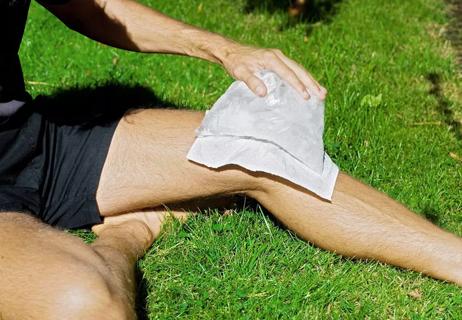Advertisement
They can last 10 to 15 years, but factors like age and activity level can impact their longevity

You’ve tried medicine and physical therapy and injection therapies like cortisone injections, but the osteoarthritis in your knees or hips is causing you pain and keeping you from doing the things you love.
Advertisement
Cleveland Clinic is a non-profit academic medical center. Advertising on our site helps support our mission. We do not endorse non-Cleveland Clinic products or services. Policy
If this sounds like you, you might be considering having your achy joint or joints replaced.
Joint replacements are generally very successful, allowing most people who have them to return to active lives free of chronic pain.
But while artificial joints are designed to last a long time, they won’t last forever. This means that if you’re a young, active person considering a hip or knee replacement, there’s a possibility that you’ll need to have the same joint replaced more than once.
Just how long does a knee replacement last? And how many knee replacements can you have in a lifetime?
Orthopaedic surgeon Nicolas Piuzzi, MD, explains what may affect the longevity of your hip or knee replacement and what you can do to maintain it.
Based on many large studies of different joint implants, it’s generally thought that around 90% of modern total knee replacements still function well 10 or 15 years later. That number might be slightly higher for total hip replacements.
But today’s replacements might last longer than those numbers suggest, as the world of orthopaedic implants is evolving at a quick pace.
“Even though we have 15 or 20 years of data on implants, many of those implants that have been studied are no longer even in the market,” Dr. Piuzzi concedes. “We’ve come a long way with more durable and newer materials that are allowing the newer generation of hip and knee replacements to last longer than previous designs.”
One good example of a newer technology is a plastic called “highly cross-linked polyethylene,” which has very low-wear properties. There’s good reason to feel that implants made from this material will last longer than plastics that were previously used, but only time can tell.
Advertisement
Surgeons also have new tools that they think could improve the longevity of a joint replacement surgery, such as robotic surgery.
“We’ve seen that the partial knee replacement surgeries that we’ve been doing robotically seem to be doing better than the manually performed ones,” Dr. Piuzzi says.
That doesn’t mean that every surgery should or will be done robotically. But in certain cases, it’s showing potential to improve outcomes for people.
With all that information, it’s still important to understand that a joint replacement may need to be replaced early on or after a long period of time. The following factors can affect the lifespan of your knee replacement:
Once you’re fully recovered from your knee replacement surgery — which can take up to year — you shouldn’t feel pain or discomfort.
So, how do you know if your knee replacement is wearing out? You may start to feel:
“The main symptoms to be on the lookout for are if you’re doing well and something changes, especially if pain limits activities or wakes you up at night,” clarifies Dr. Piuzzi.
When a failure occurs, a revision surgery is needed to replace the original implant.
That’s a pretty big deal because revision surgery is a longer and more complex procedure. It requires specialized tools and implants, as well as a surgeon with advanced technical skills.
“The good news is that we now have improved tools, techniques and care pathways to revise failed total joint replacements and outcomes have improved,” says Dr. Piuzzi.
So, how can you reduce your chances of needing a second knee replacement? Dr. Piuzzi says you can maintain your knee replacement by doing the following:
Advertisement
If you’re having difficulty with your knees or hips, it may be time to consider a knee or hip replacement. The technology and materials used for hip and knee replacements have evolved. Your healthcare provider can answer any questions you have and help you make the best decision for your body and lifestyle.
“The newer materials, the novel technical procedures such as robotics, and the new knowledge that we’re applying to today’s surgery should impact how long they last,” Dr. Piuzzi reassures. “Hopefully, 20 years from now, the numbers that we’re going to be seeing will be even better.”
Advertisement
Learn more about our editorial process.
Advertisement

Running doesn’t cause knee arthritis, but you can take steps to minimize cartilage damage

Wall squats and calf stretches are among the exercises that can help ease knee pain

This extreme stretch can help build hip mobility and address pain in your back, knees and feet

Find the right sleep position to tame your joint pain

Hip and knee replacements are among the most successful and satisfying

Improved implants and techniques allow for safer use in younger patients

Work on building strength and flexibility to keep the joints moving

Take the ache away from your joints with these at-home exercises

Focus on your body’s metabolic set point by eating healthy foods, making exercise a part of your routine and reducing stress

PFAS chemicals may make life easier — but they aren’t always so easy on the human body

While there’s little risk in trying this hair care treatment, there isn’t much science to back up the claims